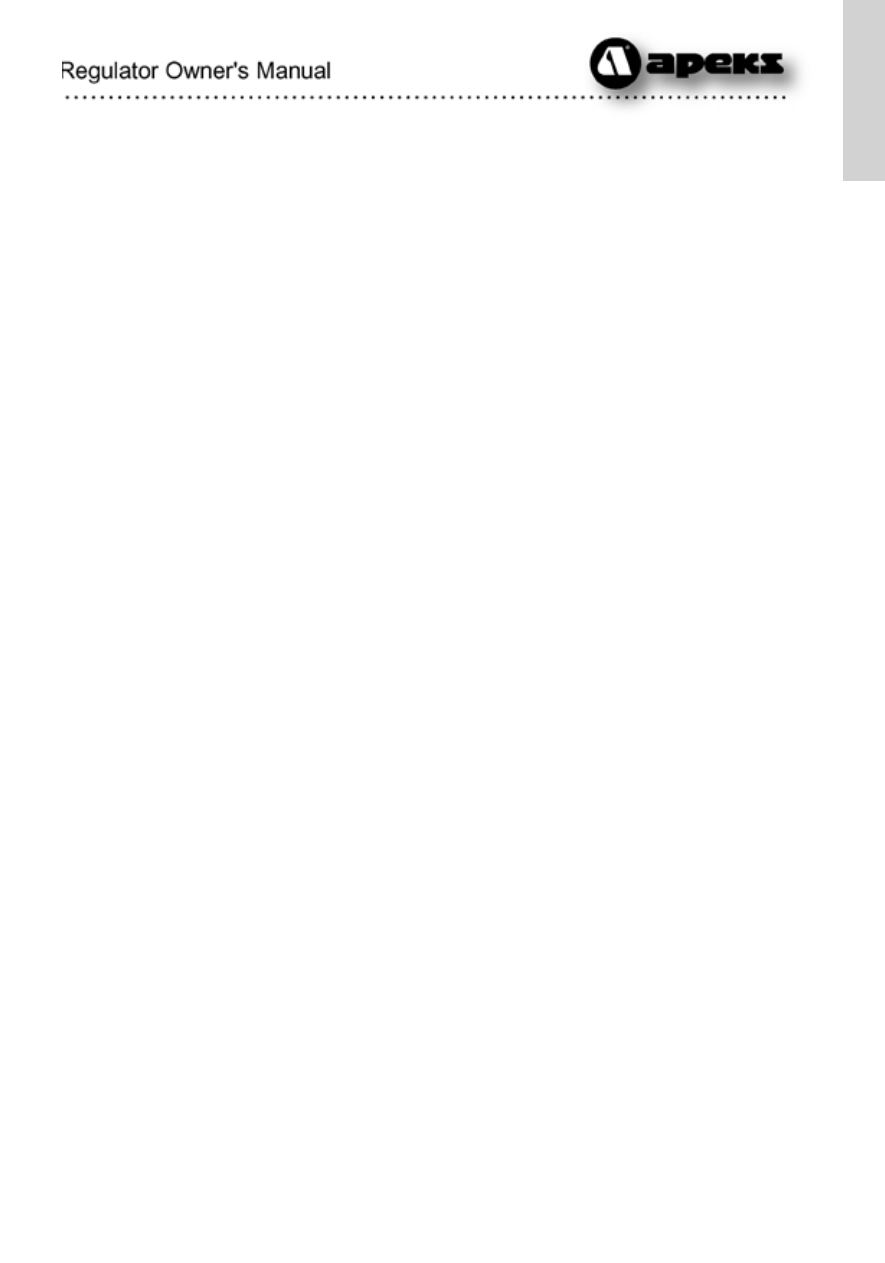Auxiliary emergency breathing systems – Aqua Lung Apeks Regulator User Manual
Page 22

US
22
Auxiliary Emergency Breathing Systems
For safety reasons when using Self Contained Underwater Breathing
Apparatus (SCUBA), it should always be recommended to use an
appropriate alternative breathing air (gas) source/secondary life
support system. This recommendation can vary depending on location
and training agencies you have received your training from and you
must follow how you have been trained. However, it is common
practice within recreational diving and during some commercial diving
to use an Auxiliary Emergency Breathing System also known as an
Octopus or Alternative Air Source second stage, to fulfil or support this
requirement. An Octopus is a secondary demand valve, designed to
work in conjunction with the primary demand valve and they are both
connected to the first stage pressure reducer. The Octopus provides
a backup demand valve in cases of primary demand valve failure
and may also act as an Alternative Air Source (AAS) for the diving
Buddy. An AAS does not require the Donor diver to remove their own
primary demand valve when supplying gas to a Buddy diver who has
experienced regulator failure or an out of gas situation.
By its very nature (other than during training exercises) this type of
apparatus is only expected to be used during emergency situations
and is therefore likely to experience very high ventilatory demand, as it
is required to support two divers breathing at the same time.
SCUBA single demand regulators capable of meeting the breathing
performance requirements of BS EN 250:2000 cannot be relied upon
to meet the same performance requirements when used as part of an
Octopus system. This is due to requiring twice the performance from
the first stage pressure reducer in an already strenuous environment.
Reduced breathing performance of second stage demand valve
systems may be experienced when using low performance first stage
pressure reducers with poor performing and incompatible second
stage demand valves. This may go some way to explaining the num-
ber of divers who inexplicably break contact with their buddies during
alternative air supply (AAS) ascents using some SCUBA Octopus
systems.
